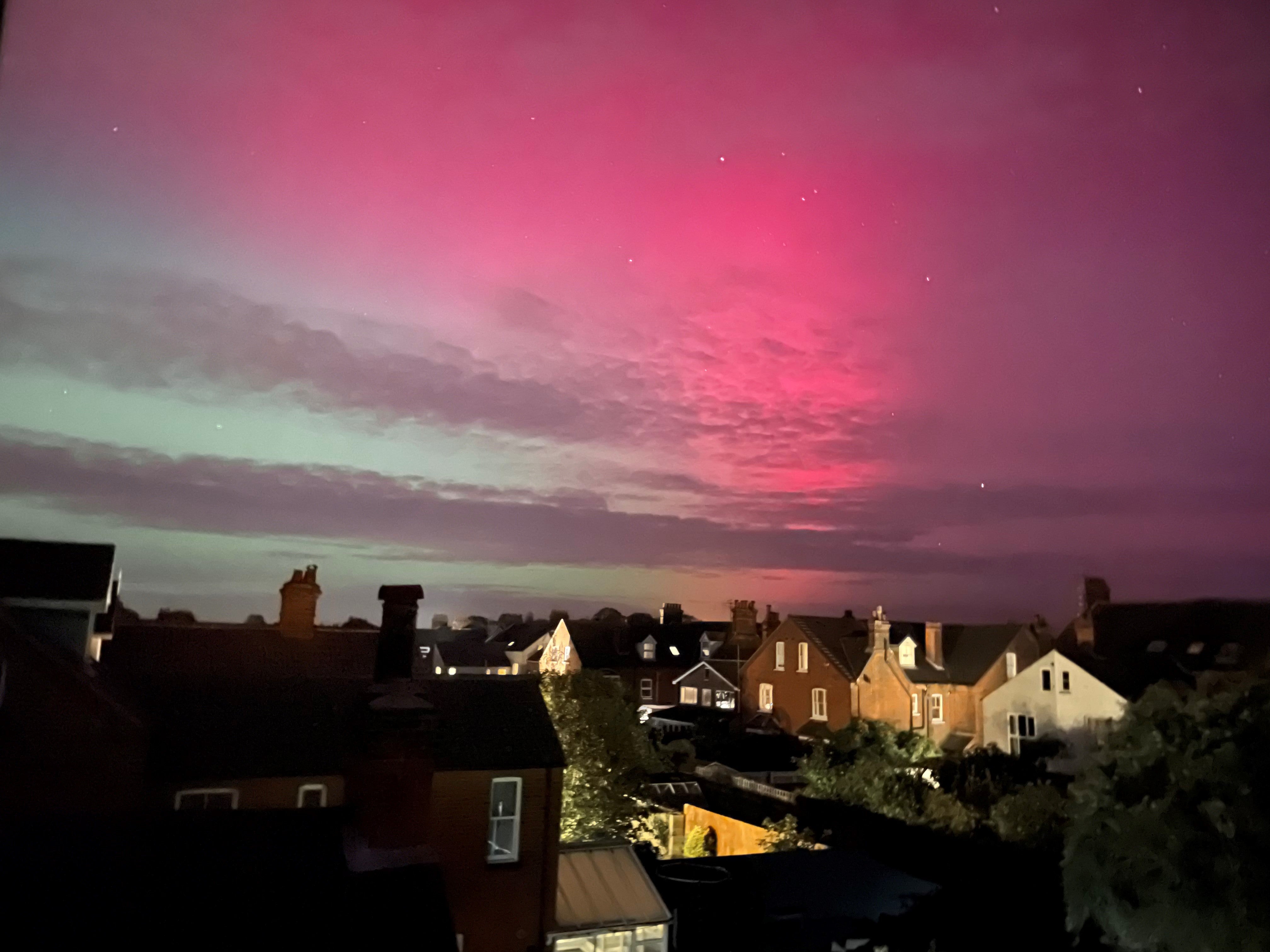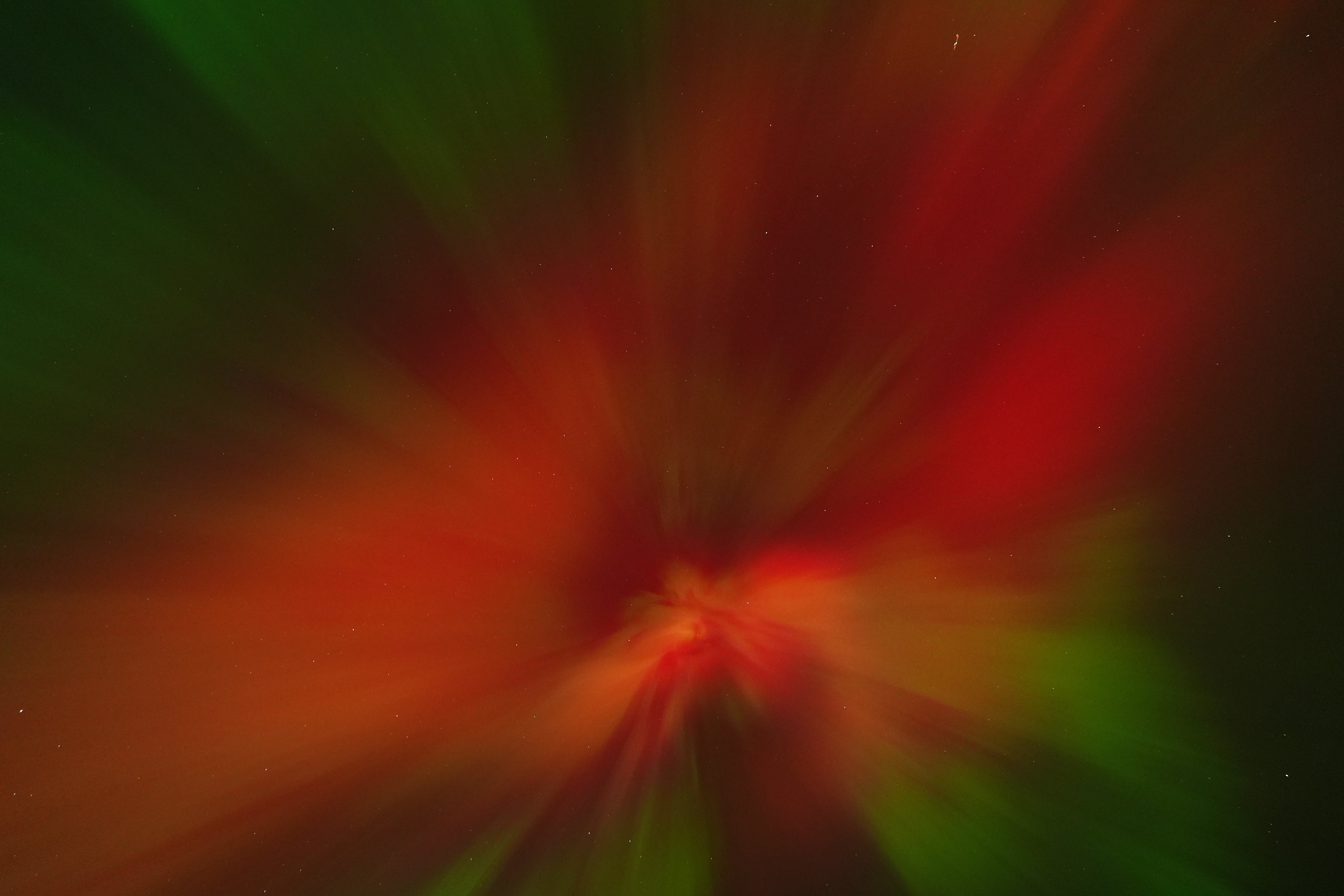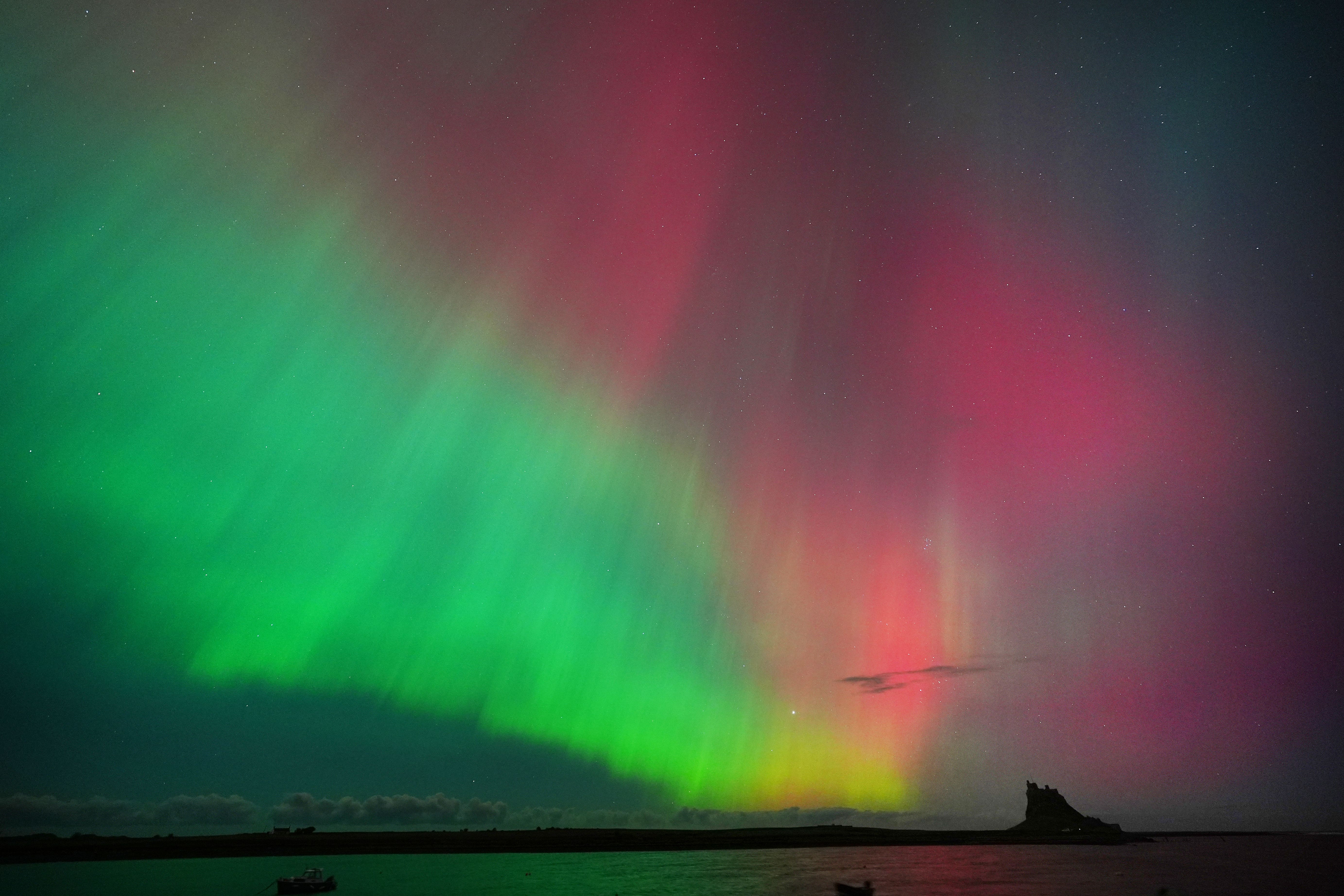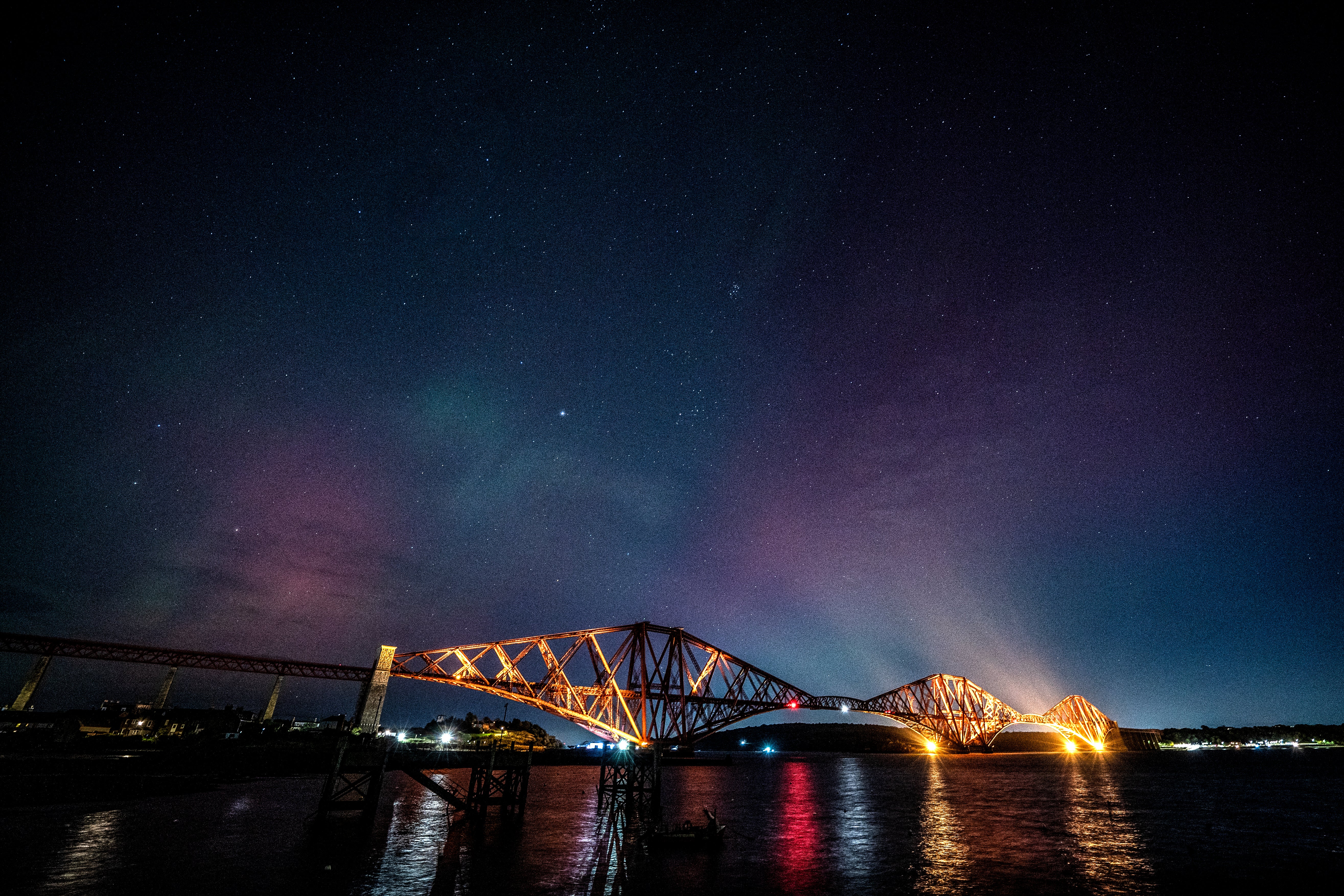Will we see the Northern Lights tonight? Spectacular Aurora Borealis display lights up night’s sky
Stunning photos of spectacular natural phenomenon captured across England on Thursday
The Northern Lights lit up the skies with spectacular bright pink hues visible on Thursday night.
Stunning photos of the dazzling natural phenomenon were captured across the country.
The lights, also known as aurora borealis, could be seen as far south as Kent and East Anglia.

The Met Office had said relatively clear skies were forecast for much of the UK, creating a “decent chance of visibility” across parts of the UK on Thursday night and into the early hours of Friday.
Spokesman for the forecaster Stephen Dixon also said there had generally been “more space weather events in recent months”, including the Northern Lights, because the sun was nearing the peak of its solar cycle.

The auroras on Earth, which are most commonly seen over high polar latitudes but can spread south, are chiefly influenced by geomagnetic storms, which originate from activity on the Sun.
The sun works on a cycle of around 11 years called the solar cycle – with peak sunspot activity on the surface of the Sun referred to as solar maximum.
Sunspots give the potential for Earth-directed releases of large bursts of energy, called coronal mass ejections, which can lead to aurora visibility.
Aurora displays occur when charged particles collide with gases in the Earth’s atmosphere around the magnetic poles.

As they collide, light is emitted at various wavelengths, creating colourful displays in the sky.
However, when it comes to tonight, Britons might be disappointed, with the weather service predicting a gradual decrease in chances of seeing the lights over the weekend.

In its latest space weather forecast, the Met Office says: “The chances of aurora remain initially, though gradually easing through 11 October, becoming increasingly confined to far northern geomagnetic latitudes by 13 October.”
And the atmospheric forecast overnight similarly does not bring too much promise, with predictions of rain, which would not provide the clear skies needed to spot the aurora.
The forecaster says: “Cloudier skies for many this evening, with outbreaks of rain across Scotland edging southwards, as winds strengthen.”
However, the weather service offers some hope for those in search of the Northern Lights.
In a post on X on Friday morning, it wrote: “Cloudier skies tonight will limit the chances of seeing the Northern Lights – however, Scotland offers the best chance of seeing the Aurora.”
Join our commenting forum
Join thought-provoking conversations, follow other Independent readers and see their replies
Comments
Bookmark popover
Removed from bookmarks